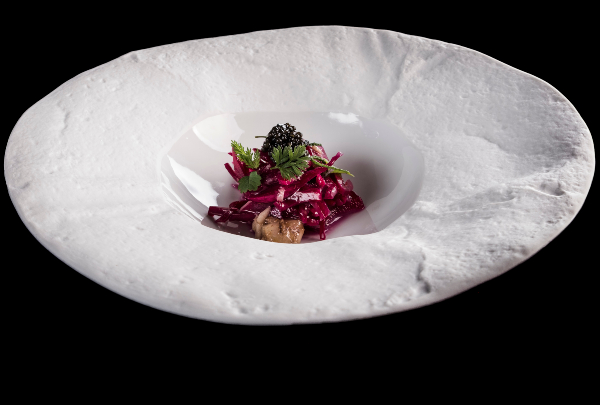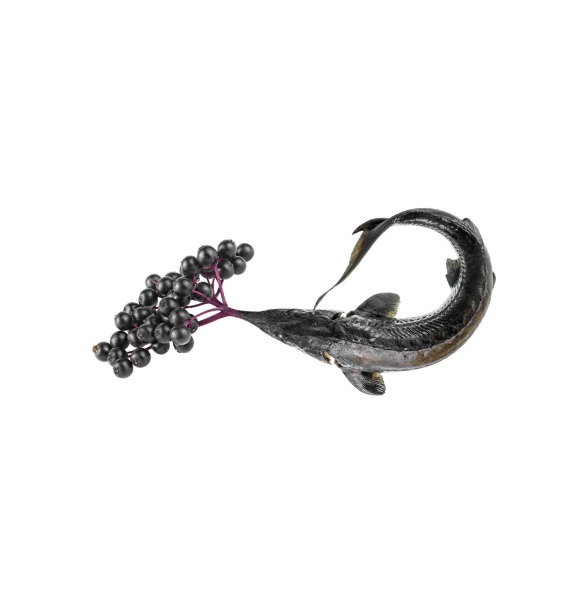Interview
Ekaterina Alekhina: ‘A restaurant is its own ecosystem’
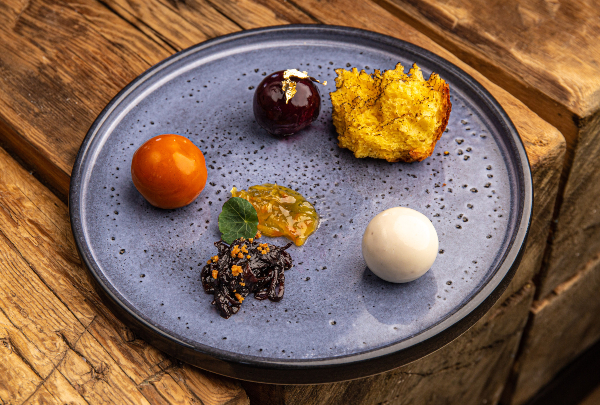
Alekhina is building a gastronomic discourse based on the very essence of biology and the various natural kingdoms.
From Il’inskoye, a village in the region of Moscow, chef Ekaterina Alekhina is building a gastronomic discourse based on the very essence of biology and the various natural kingdoms: animal, plant, fungus and bacterium. Her restaurant is called, naturally, Biologie.
Using the family’s savings and with the encouragement of her husband and children, Ekaterina Alekhina eventually decided to follow what her heart had been telling her since she was eight years old – to open her own restaurant. ‘I was never much one for toys, but I did read a lot. One day, wandering around our home library, I came across some notes my mother had written and I tried to prepare my first dish ever: a cherry flour cake. I never finished making it.’ But it didn’t matter. Time would show that cooking would be her passion.
After studying at Ragout – a cooking school in Moscow – and doing work experience at various restaurants and as a stagiaire at Arzak***, Ekaterina chose a path that was an unusual one for Russian chefs to take: going into business and setting up her own restaurant. Biologie. It was more than a business. It was a dream.
Alekhina is involved at every level of the restaurant. But it is in the kitchen where she spends the most time: ‘I practically live in the kitchen. I only leave the restaurant to go to the market to choose exactly what I need.’ For Ekaterina, the kitchen is not considered a separate entity. The food is therefore an extension of the first impression that diners get, but it also involves music and the ‘goodbye’ the waiters say as diners leave. That is why Ekaterina pays special attention to everything that comes before the gastronomic experience itself, such as the artworks that hang on the walls at Biologie, painted by the chef herself. ‘I realised that every brushstroke, every centimetre of floor that I walk on as I enter the restaurant brought me closer to the moment when I’d begin cooking.’ The dining room is like a preview of the creation and is also like the end goal of that creation – a loop that makes total sense as part of a gastronomic idea that has been fashioned by weaving together the elements that constitute life itself.
The tree of life
The basic idea behind the restaurant is rooted in biology and its various branches. ‘We’ve based our dishes on the kingdoms of life: animal, plant, fungus and bacterium, and we study the way they interact to offer dishes that are as healthy as they are interesting from a gastronomic point of view.’ Science and cooking hand in hand to offer food that not only takes into account the ingredients themselves, but also the molecular interaction between them. But don’t expect fireworks or special effects: ‘The restaurant is called Biologie – not Technology or Investology – Ekaterina Alekhina clarifies. ‘My aim is to surprise diners by changing the essence of the ingredients on the plate, but without resorting to special effects,’ explains this cook, who champions the idea that the produce used at her restaurant is so important that ‘seasonality is not understood literally as a classification of ingredients according to the time of year, but that, above all, we should bear in mind the natural life of each ingredient individually.’ One at a time. Ingredient by ingredient. Always seeking the moment when each one is at its peak and best to use.
To achieve this chemical and physical manipulation of the ingredients, Ekaterina Alekhina works in the lab next to the kitchen – a set-up ‘that allows each ingredient to be studied, expanding the range of their possible manipulations beyond the usual traditional culinary techniques.’ The chef and her team examine and use enzymes as catalysts, look closely at fermentation – a very Russian technique that allows one to work on the flavour of familiar ingredients from a fresh perspective – and track the changes in the flavour and in the chemical characteristics of ingredients to identify when they are at their peak.
‘Gastronomy is expanding. As chefs, we explore the traditions and ingredients of other countries, we exchange knowledge and experience. By applying the gastronomic practices and traditions of other cultures to our local produce, new and unexpected flavours appear organically. Food acquires a new aspect and we don’t just view it as something to quell hunger, but it actually settles on an emotional plane.’ Ekaterina Alekhina works from this angle which, combined with a concern for well-being and health, has a dual effect. ‘At the end of the day, we come up with well-balanced dishes that contain healthy bacteria that are good for gut microflora and contribute not only to gastronomic well-being, but also to the health of our diners.’ And that is the cornerstone of Biologie.
Gastronomically speaking, Alekhina offers ‘familiar dishes prepared in an unfamiliar way.’ An example of this is her Russian borscht (a traditional beetroot soup) that becomes a totally new culinary experience as the usual boiled beetroot are turned into a sort of jam. ‘We oven-roast the beetroot, dehydrate them and then leave them to ferment in their own fresh sap.’ The focus is always on the ingredient because, for Ekaterina Alekhina, ‘as a chef it’s really important for me to centre on the quality of the ingredients that I use.’ It’s the reason why one of the new projects this inquisitive cook has in mind is to set up a farm… All part of the ecosystem that Ekaterina Alekhina is constructing at Biologie.
An interesting project that highlights the fact that Russian cooking has much to offer beyond the established names, such as Mukhin, the Berezutsky brothers, Grebenshikov, Grishechkin, Blinov and Berdiev. A new era is beginning for Russian gastronomy, one that is more sustainable, healthier and more mindful.

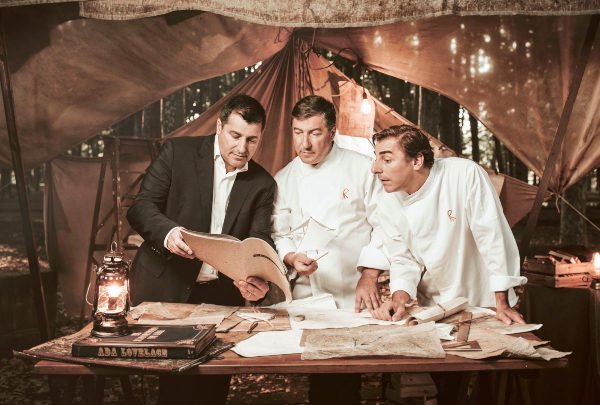
 600x405.jpg)

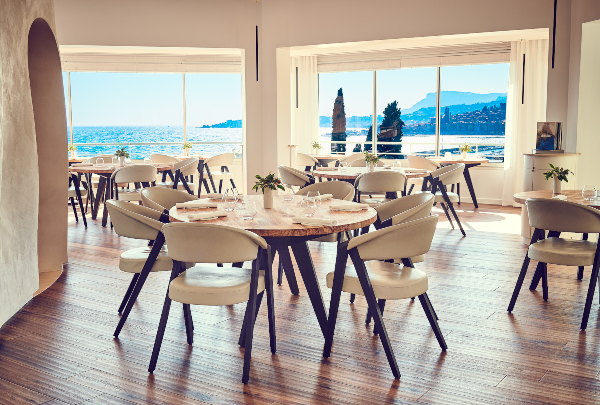
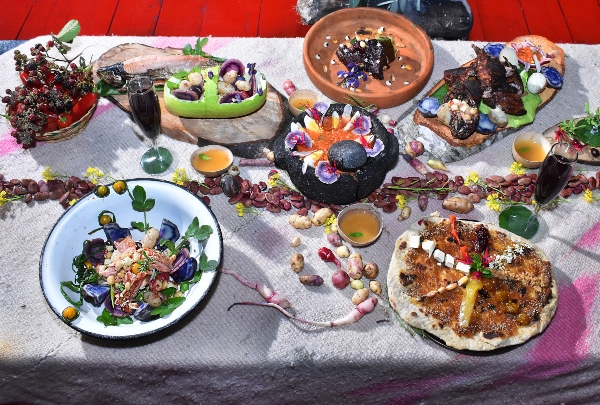
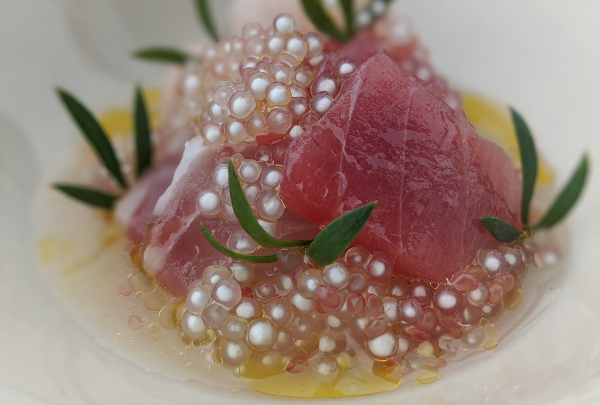
600x405.jpg)
.jpg)
.jpg)
